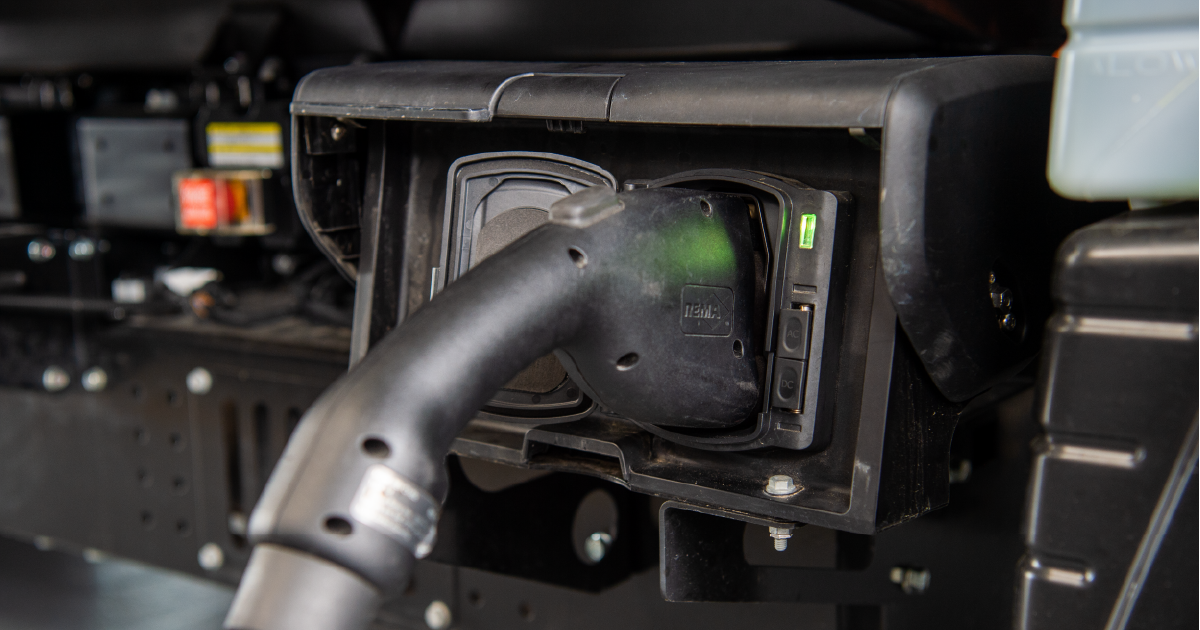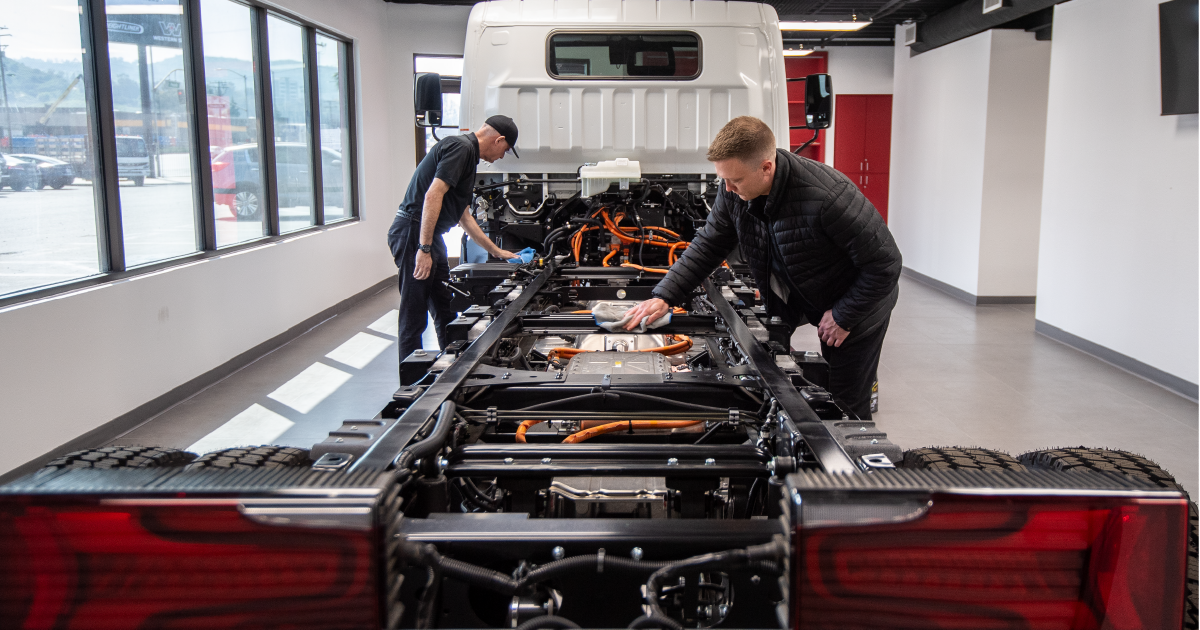EV adoption for fleets is increasingly becoming a sound option for fleet managers. Here, we’ll explore the top five reasons why EV adoption makes sense, from tax credits to lower operating costs.
1. Substantial Cost Savings Over Time

EV adoption offers fleets a chance to cut costs and increase efficiency:
Reduced Fuel Costs: With no reliance on fossil fuels, EVs cost less to power than traditional diesel and gas-powered vehicles. Electricity is generally cheaper per mile than both diesel and gasoline.
Lower Maintenance Costs: Unlike internal combustion engines (ICE vehicles), EVs have fewer moving parts, which reduces maintenance needs and associated downtime. Also, EVs feature regenerative brakes making brake pads and rotors last much longer, and oil changes aren’t necessary. This means no servicing oil or air filters.
Tax Credits and Incentives: In the U.S., the Inflation Reduction Act offers substantial financial incentives for fleets transitioning to EVs, making it easier to recoup upfront costs. Some states, like California, also have incentive programs.
Canada also has generous federal and provincial incentives.
See how EV total cost of ownership can benefit you.
2. Adequate Range and Charging Flexibility

Concerns around range anxiety and charging are fading as EVs become more advanced:
Flexible Charging Options: Fleet operators can take advantage of both AC and DC fast charging, with the latter significantly reducing charging times. AC charging provides a cheaper option without complex infrastructure development.
Range for the Job: Electric vehicles have sufficient range for most daily needs. In terms of urban logistics and last-mile operations, most delivery vehicles drive less than 100 miles per day, well within RIZON’s 160-mile range.
Reduced Idle Time: Charging during off-hours can reduce downtime, especially helpful for fleets on tight schedules.
3. Better Environmental Impact and Compliance

EVs provide a clear environmental advantage over gas and diesel-powered vehicles:
Lower Emissions: Electric vehicles produce zero tailpipe emissions, helping reduce pollution and dependency on fossil fuels.
Efficiency: EVs like RIZON have advanced components and features that increase energy efficiency and reduce weight and friction for smoother operations. This also leads to greater mechanical durability.
Regulatory Compliance: As environmental standards tighten, EV adoption helps fleets stay compliant with regulations, avoiding penalties and building a reputation as an eco-conscious operation.
4. Enhanced Reliability and Longevity

EVs offer dependable performance, even in demanding fleet scenarios:
Consistent Output Across Conditions: Lithium Iron Phosphate (LFP) batteries, a popular choice in commercial EVs, provide consistent power, in both hot and cold weather conditions.
No Dependency on Supply Chains for Fossil Fuels: With fuel price volatility in the ICE vehicle market, EVs provide stability and predictable costs.
Reduced Wear-and-Tear: Without the internal combustion engine, EVs experience less mechanical wear, extending their lifespan and reducing replacement needs. This is due to fewer moving parts, more durable brakes, and the elimination of engine oil servicing.
5. Access to a Growing EV Market and Increased Driver Satisfaction

EVs are becoming more mainstream, making it easier to integrate them into fleet operations:
Higher EV Sales and Availability: As electric vehicle adoption increases in the U.S., fleet managers have a wider selection of models designed for specific tasks. In the class 4-5 range, RIZON trucks provide ideal options for urban logistics.
Enhanced Driver Experience: EV drivers often report a smoother, quieter ride, which can improve driver retention and satisfaction. RIZON trucks feature a cabover design with a tight turning radius and ergonomic seating.
Competitive Advantage: Being early adopters can position fleets favorably, aligning with growing consumer demand for sustainable practices.
Conclusion: Making the Shift to Electric Vehicles in Fleet Operations
The shift toward EV adoption offers financial, operational, and environmental benefits for fleets across North America. From tax credits to reduced dependence on fossil fuel, EVs present fleet managers with a sustainable alternative to gas and diesel-powered vehicles. As the EV market grows and infrastructure improves, fleets that embrace electric vehicle adoption can stay competitive, efficient, and environmentally conscious.

